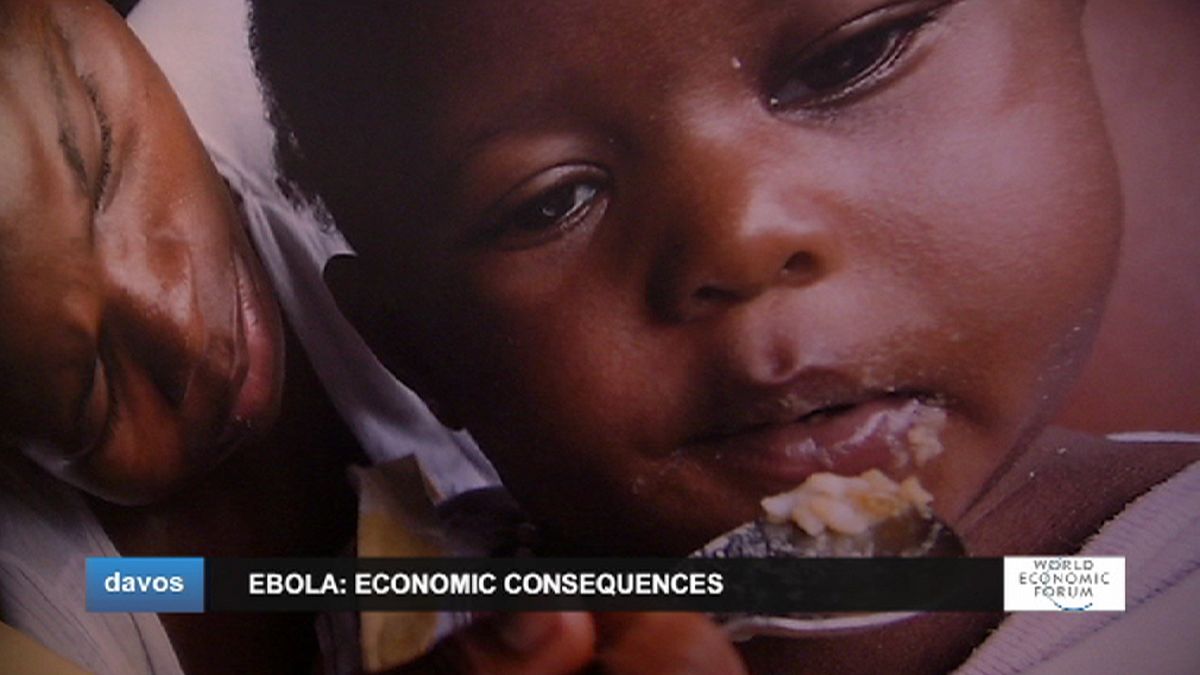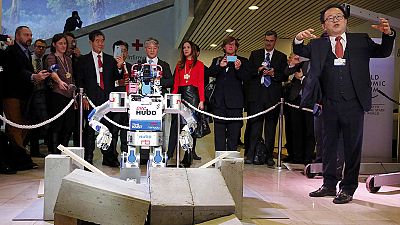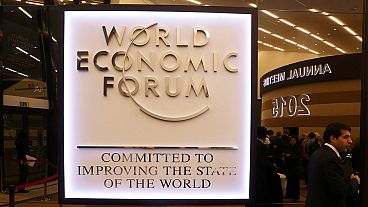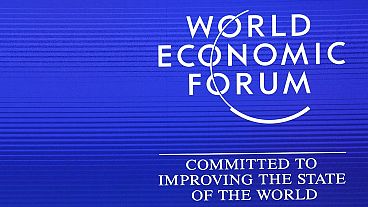The global response to the worst Ebola outbreak in history is a key topic at the World Economic Forum.
The UN’s World Food Programme is feeding more than two million people in the West African countries hit-hardest by Ebola – Sierra Leone, Liberia and Guinea.
The disease has claimed more than 8,000 lives – and the outbreak continues to pose a grave threat to food security.
Ertharin Cousin, the Executive Director of the World Food Programme, told euronews that because many people could not bring in the harvest there is less food available, and what there is has been more expensive, which affects the poorest worst.
The United Nations says that Ebola could be eradicated this year. Even if that proves to be possible, the economic effect of the outbreak will be felt for years to come.
Guy Ryder, Director-General of the UN International Labour Organisation warns that the three hardest-hit countries already had fragile job markets before Ebola struck.
“Our estimates – and they have to be provisional because we do not know the way it is going to all turn out – is that we could be talking about a loss of 12 percent of national income – the effect on the economies of the three countries concerned is already in the region of around 12 percent,” Ryder said.
For more insight on this, and the wider problems of poverty and inequality in society, we spoke to Winnie Byanyima, who is Executive Director of Oxfam International and also the Co-chair of the World Economic Forum 2015.
Isabelle Kumar, euronews: “Winnie Byanyima, many thanks for joining us. Oxfam has just released a report saying that one percent of the world’s wealthiest are going to earn more than 50 percent of the world’s wealth. Do you see a chance of reversing that trend?”
Winnie Byanyima: “Yes, it is possible to reverse this trend because extreme inequality isn’t an accident, it is the result of choices. The right policy choices can turn it around.”
euronews: “Do you think people are listening to you here in Davos?”
Byanyima: “Yes, they have to, because business leaders and political leaders are interested in a stable society where they can make their profits and where they can govern well. So business leaders and political leaders are beginning to get the message. They have the message that extreme inequality is rising rapidly and if it’s not turned around it’s bad for growth, we cannot eradicate poverty, it’s bad for governance and it’s bad for the well-being of societies.”
euronews: “If we look at the Ebola-hit West African countries, it seems a tragic irony that a few people are making so much profit and that profit could be better spent helping countries like Sierra Leone, Liberia and Guinea.”
Byanyima: “Absolutely. One of the ways to reduce extreme inequality is to fix the global tax system. Unless these companies that are mining in Liberia and Sierra Leone are made to pay their fair share of taxes, these countries will never have the resources they need to build public health systems that can prevent crises like Ebola.”
euronews: “And do you think that here people are going to be pledging money to those three nations?”
Byanyima: “It is not a question of pledging. The World Economic Forum is not a pledging conference, it’s a networking conference. We can build the consensus around certain things like having a global tax summit this year where the international community can agree on fixing the global tax system, like agreeing and moving forward on putting more resources into public health and public education [so that it] is free for all children and all people. These are issues of consensus between business and government.”
euronews: “And finally, let’s take a big picture view of Africa. If you could just give me an area where you’re feeling optimistic about when it comes to 2015, and one maybe where you’re less hopeful?”
Byanyima: “I’m optimistic because Africa now has been turning in positive and strong figures of growth. This is good. And it’s positive and I hope it continues.
“But I am not very optimistic when I see that that growth is very much captured by a political and connected elite working closely with multinational companies, that this wealth, being created, is not being ploughed back into the lives of ordinary people, creating jobs and giving them health and education. We need to do more to bring the resources to the people.”



